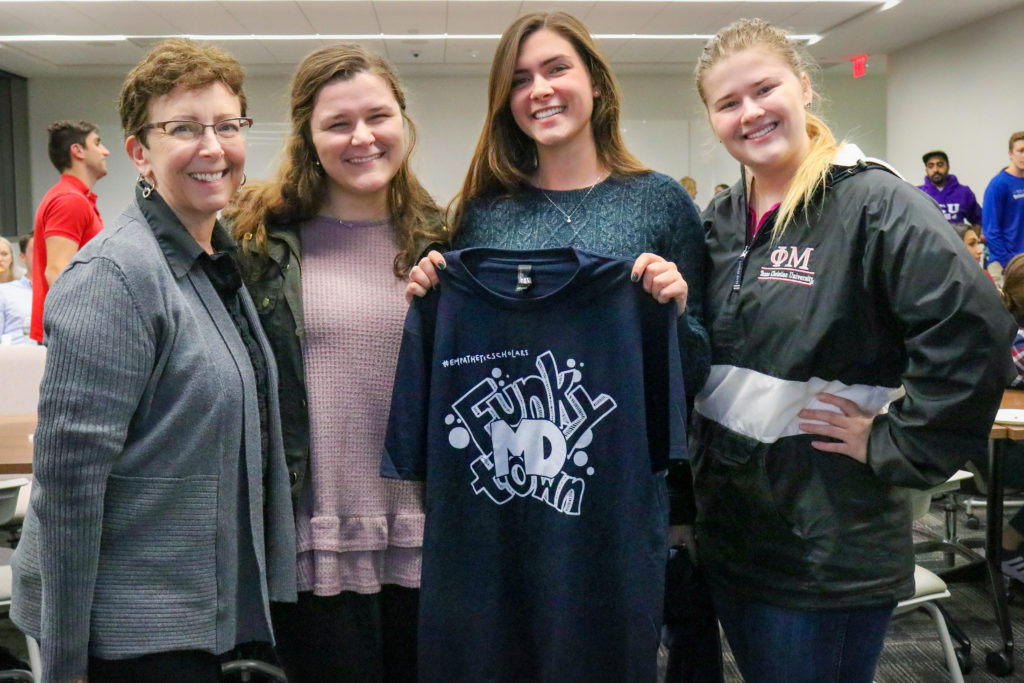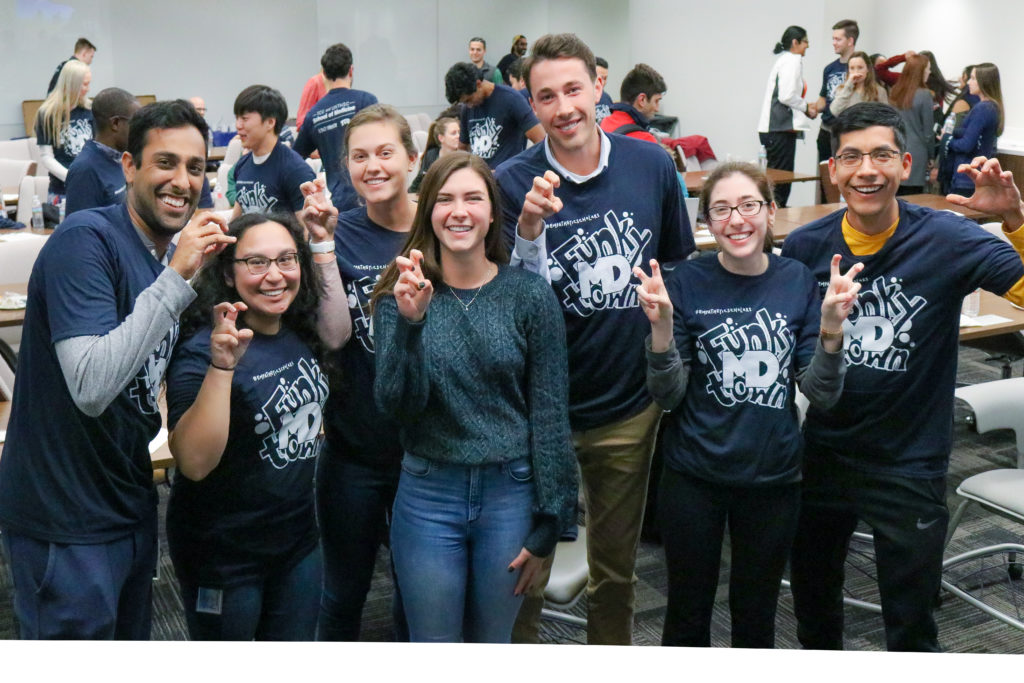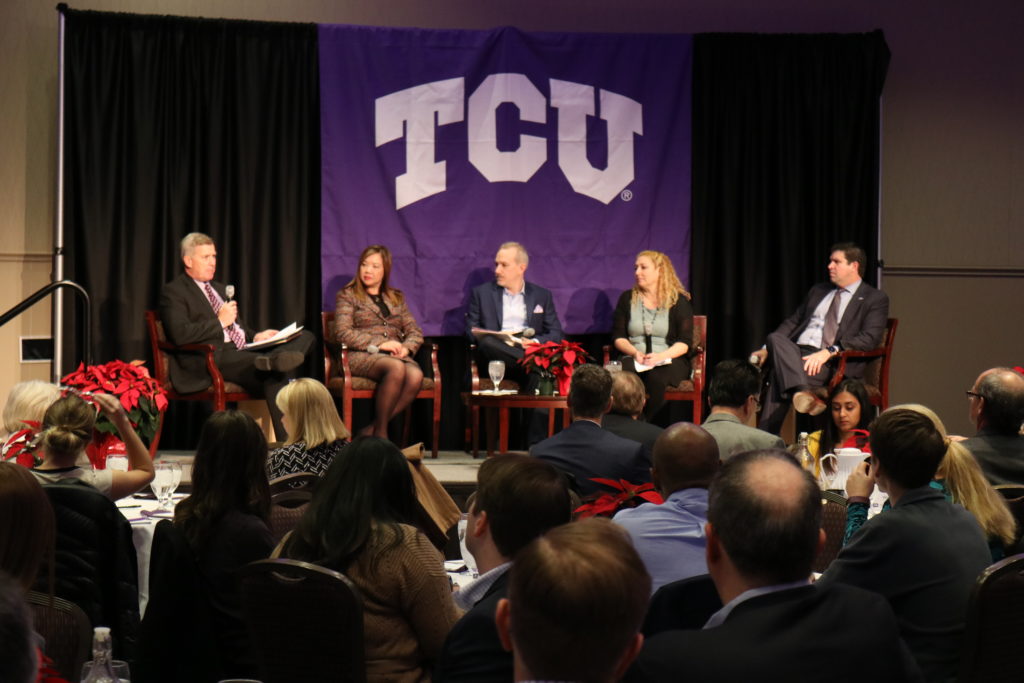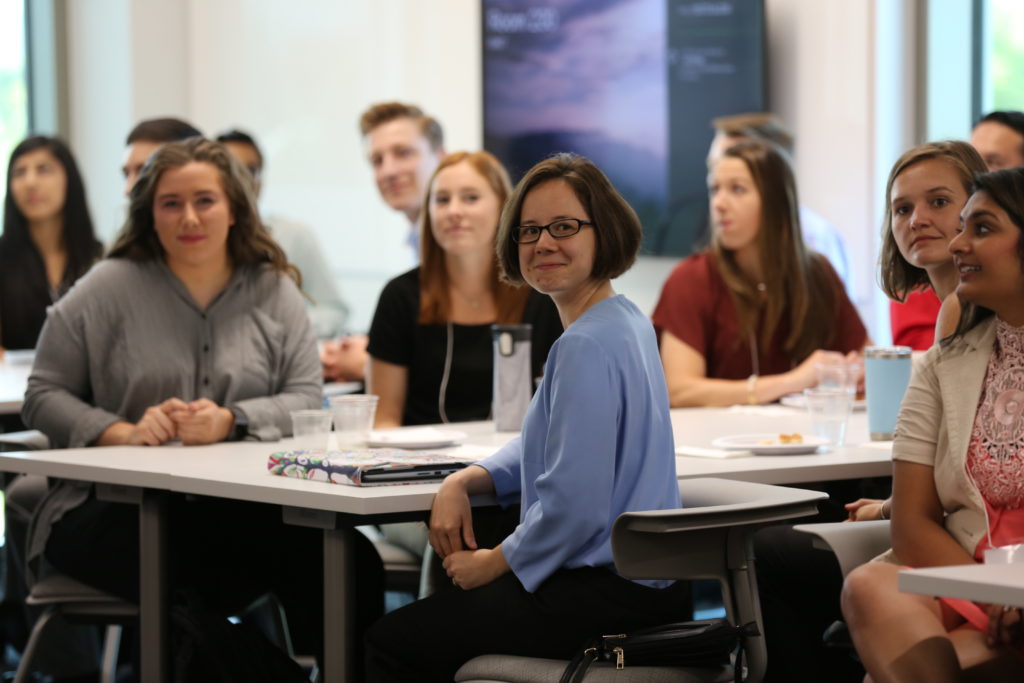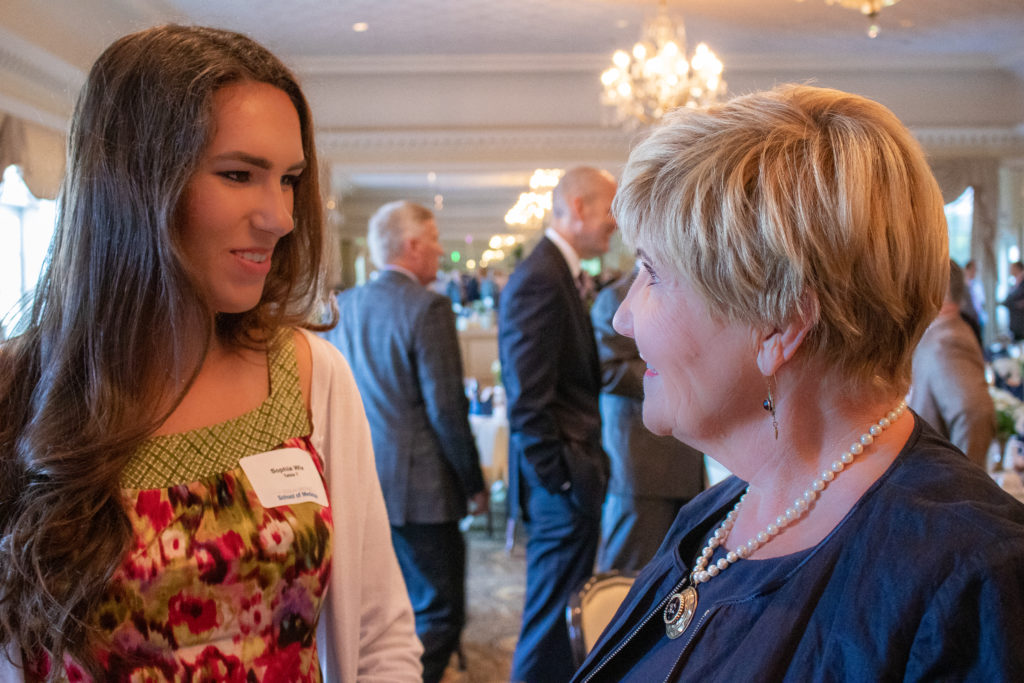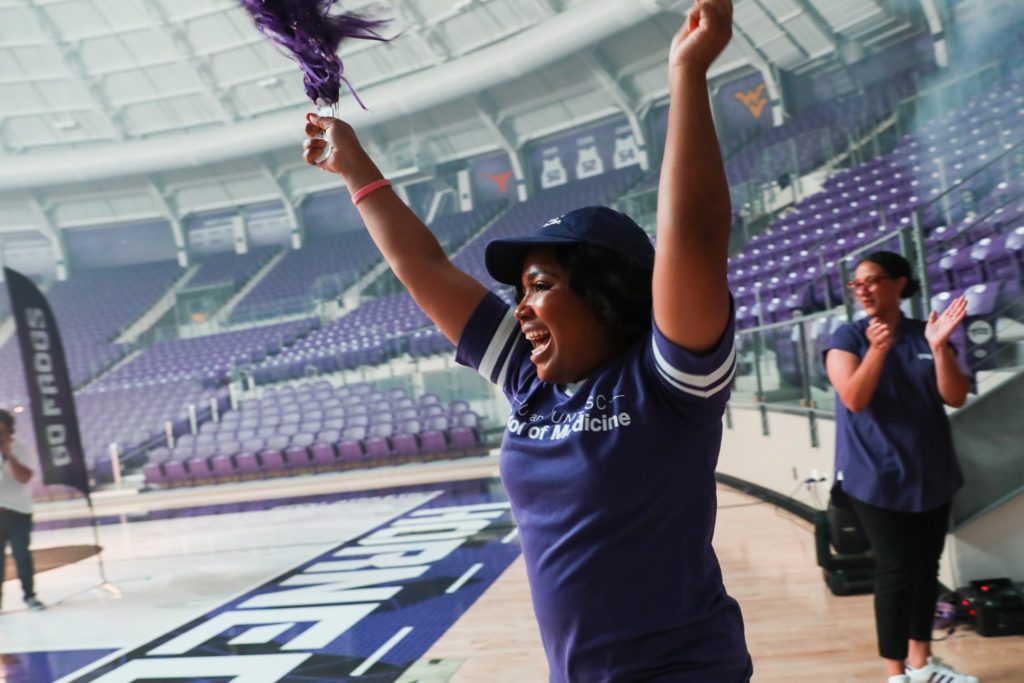FORT WORTH, Texas – A collaboration between Baylor Scott & White All Saints Medical Center – Fort Worth and the TCU and UNTHSC School of Medicine will create more than 150 new medical residency slots annually.
“We will be accepting our first class of residents in 2021,” said Mike Sanborn, MS RPh, FACHE, president of Baylor Scott & White All Saints Medical Center – Fort Worth.
The Graduate Medical Education (GME) collaboration will be a boon not only for the medical community in Fort Worth, but also for residents of North Texas as it helps to address a growing need for physicians in the Fort Worth area.
On February 5, physicians, journalists and community members packed into the atrium of the Andrews Women’s Hospital at Baylor, Scott & White – Fort Worth to get more details on the new collaboration.
“I could not be more pleased and prouder of this collaboration and so excited for the opportunities it provides to our future graduates, as well as what it means for our City and community,” said Stuart Flynn, M.D., founding dean of the TCU and UNTHSC School of Medicine.
In 2020, the ACGME-accredited program will interview and select its first cohort of medical school graduates, who will begin their residencies at Baylor Scott & White Fort Worth in July of 2021 in the areas of internal medicine and emergency medicine. The program will add residents each year, reaching a peak of more than 150 residency positions in the 2027-2028 academic year.
“New GME (Graduate Medical Education) slots in Fort Worth and Tarrant County are a critical need in our community,” Dean Flynn said. “While we have a new medical school that will produce great graduates, they need more opportunities for residency training close to home. This is a tremendous step in meeting the needs of our community.”
First-year medical student Kassidy Fretz, a native of Colleyville, said the possibility of having the opportunity to begin practicing medicine at Baylor, Scott & White once she completes medical school in 2023 would mean a lot to her.
“I’ve grown up in this community all my life and it’s super meaningful to be able to serve people in the community that you grew up in,” Fretz said. “The other reason is that I have my family here. That would mean I wouldn’t have to uproot my children from their schools and my husband from his job.”
Keeping medical students within the state to complete their residency is a big benefit for North Texas and the state of Texas as a whole as well.
In Texas, 59 percent of residents stay in-state after training, according to the Association of American Medical Colleges. If they attend medical school and do their residency in Texas, that number increases to 81 percent. This new collaboration is an academic-aligned program, allowing for competitive recruitment of top medical school graduates from Texas and across the United States.
The collaboration also marks a proud moment for Fort Worth Mayor Betsy Price who has been one the biggest supporters of the medical school.
“I am so excited to see this collaboration between the TCU and UNTHSC School of Medicine and Baylor, Scott & White All Saints Fort Worth. This is the kind of announcement we envisioned happening when the new M.D. school launched,” Price said at the announcement. “This partnership will ensure Fort Worth continues to attract and retain the best minds in medicine to keep our community healthier and also show the world that Fort Worth is a city where medical innovation is taking place.”
The Fort Worth M.D. School, which began with its first inaugural class of 60 medical students in July 2019, has been training the students with a new approach to medical education and care by creating Empathetic Scholars ™. They are doing that by infusing communications-based training within the curriculum with the Compassionate Practice™ team.
The medical students have also been partnered with physicians based in the Dallas-Fort Worth area and have been working with patients since their first weeks of school through the Longitudinal Integrated Clerkship.
Steps to Becoming a Doctor (.pdf)
The chance to possibly keep those relationships with local physicians and patients is a big plus for first-year medical student Brandon Mallory.
“Having done undergrad at the University of Texas at Dallas I have family and friends as a support system that can continue to support me through medical school,” Mallory said. “It’s also exciting for me and my classmates because we can continue the relationships we’ve built in medical school once we become full doctors.”
The program supplements existing graduate medical education in Fort Worth by providing more options for new physician graduates.
“The new affiliation will create a robust academic center in Fort Worth aimed at addressing physician shortages in the area and attracting and retaining the future generation of physicians,” Sanborn said. “Overall, this program will continue to emphasize Baylor Scott & White’s commitment to outstanding patient care, education and research, while providing more options for new physicians to live, stay and practice in Fort Worth.
Future programs will include OB/GYN, general surgery, anesthesia, as well as a transitional year program. Fellowship training programs in specialties such as cardiology, oncology, hepatology, and nephrology are also being considered.
“Prospective medical students and prospective GME residents will find a great collaboration for graduate medical education. Our faculty will teach in their residency training – and their residents will have a key role in training our medical students,” Flynn said. “Together we will address the important challenges of medical education and ensure long term that we will have enough physicians in our community and the meet our goal of inspiring Empathetic Scholars™ in both medical school and graduate medical education.”
Prescotte Stokes III is the Integrated Content and Marketing Manager. You can reach him at p.stokes@tcu.edu
